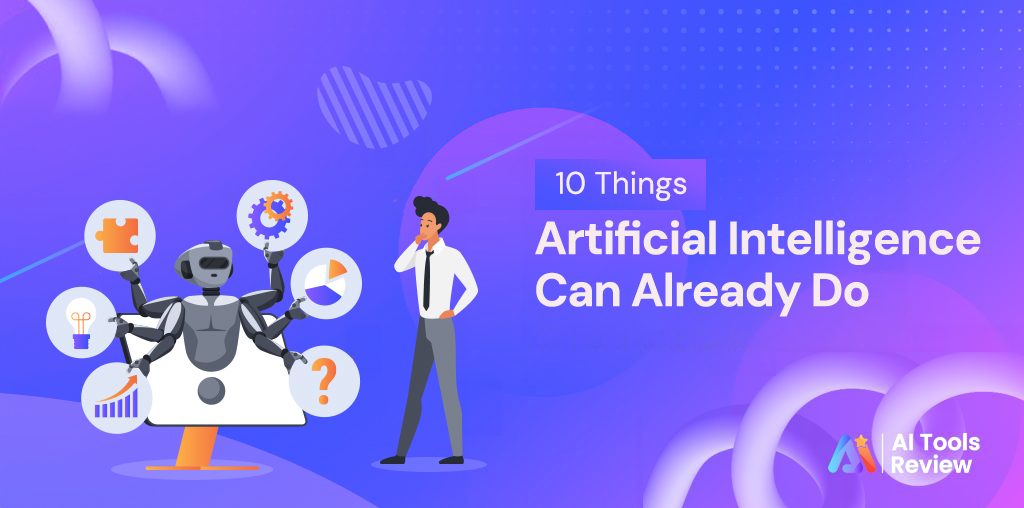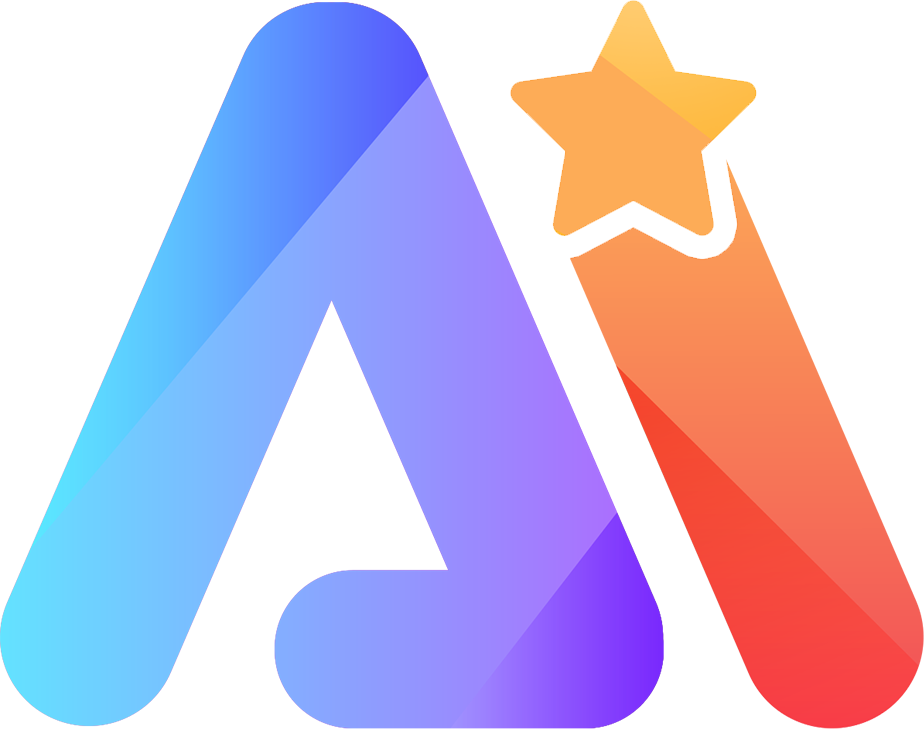Artificial Intelligence (AI) has swiftly transitioned from a science fiction concept to a revolutionary force in our everyday lives. Today, AI can automate repetitive tasks like data entry and email filtering, effectively saving time and minimizing human errors. It personalizes marketing and content by analyzing consumer behavior, resulting in customized experiences.
In the financial sector, AI forecasts market trends using sophisticated data analysis techniques, while in healthcare, it assists in diagnosing conditions through advanced imaging and pattern recognition. AI also fortifies cybersecurity by identifying and addressing threats in real time and enhances customer service through chatbots and virtual assistants.
1. Increase Productivity
AI tools play a crucial role in increasing productivity by automating routine tasks, enhancing decision-making, and streamlining workflows. AI-powered task management systems efficiently prioritize and schedule tasks, minimizing planning time and allowing teams to concentrate on more impactful activities. Intelligent automation takes over repetitive processes such as data entry and customer interactions, freeing up human resources for strategic roles.
SectorFlow exemplifies how AI can enhance productivity within specific sectors. This platform uses AI to analyze industry trends and market data, streamlining research and strategy development. By automating data collection and analysis, SectorFlow provides teams with real-time insights without manual intervention, speeding up decision-making and strategic planning. As a result, businesses experience more efficient operations, quicker responses to market shifts, and a substantial increase in overall productivity.
2. Boost Marketing
AI tools enhance marketing by automating processes, providing deep insights, and personalizing customer interactions, collectively boosting marketing effectiveness. These tools streamline tasks like ad targeting, content creation, and customer segmentation, freeing up marketers to focus more on strategy and creative work. Through the analysis of large data sets, AI tools detect trends and refine marketing campaigns in real-time, leading to more effective and efficient strategies. Additionally, AI can predict customer behavior, tailor messaging, and automate responses, ensuring that marketing initiatives are both timely and relevant. This overall approach significantly contributes to a boost in marketing productivity.
Accubits offers AI-driven marketing solutions that significantly improve productivity. Their platform uses machine learning to analyze customer data and predict trends, enabling marketers to craft targeted campaigns with precision. The AI tools automate tasks like audience segmentation and content generation, which reduces manual effort and speeds up the campaign creation process. Additionally, Accubits’ AI-driven analytics provide real-time performance metrics, allowing marketers to quickly adjust strategies for optimal results.
3. Create Videos
AI tools enhance your ability to create videos by automating time-consuming tasks and providing advanced editing features. They streamline processes such as video editing, scene transitions, and visual effects, which traditionally require significant manual effort. AI can assist in generating video content from text or templates, making it easier to produce professional-quality videos quickly.
Powder AI demonstrates how AI can transform the video creation process. This tool uses artificial intelligence to streamline and accelerate video production. Powder AI automates tasks such as generating video scripts, creating storyboards, and producing video content based on user input. It features automatic scene transitions, text-to-video conversion, and video summarization. By managing these tasks efficiently, Powder AI saves time and effort, allowing creators to concentrate on refining their content and boosting creativity. This results in a more efficient video production workflow and higher-quality videos.
4. Enhance Audio
AI tools can greatly enhance audio by automating and refining complex audio tasks that would otherwise require significant manual effort. They effectively reduce background noise, restore audio quality, and balance sound levels with high precision. Leveraging machine learning, these tools analyze audio patterns to make real-time adjustments, improving clarity and overall sound quality. Features such as automatic equalization, audio repair, and intelligent mixing ensure that the final product is polished and professional. This automation not only accelerates the audio enhancement process but also elevates sound quality, making it more engaging and immersive.
AskBrian.ai is a prime example of how AI can Enhance Audio. This tool utilizes sophisticated AI algorithms to optimize audio files, improving clarity and minimizing noise. With features like automated audio cleanup, equalization, and volume normalization, AskBrian.ai delivers professional-quality results.
5. Generate Content
AI tools greatly increase your ability to generate content by automating and optimizing the content creation process. These tools leverage natural language processing and machine learning to quickly produce text, articles, and marketing materials. They can suggest content ideas, draft various forms of writing, and tailor messages to specific audiences based on data insights.
TLDR This illustrates how AI can boost content generation. This tool uses AI to summarize lengthy texts and articles into brief, easy-to-read summaries. By automating this summarization, TLDR enables content creators to quickly extract essential information and generate focused content. This not only speeds up the creation process but also ensures clarity and relevance, helping creators produce valuable content more efficiently.
6. Improve Education
AI tools improve education by personalizing learning experiences and automating administrative tasks. These tools can adapt educational content to individual learning styles and paces, providing tailored support to students. AI-driven platforms offer interactive learning resources, real-time feedback, and data-driven insights to enhance teaching methods and student engagement.
QuantPlus is a prime example of how AI can enhance education. This tool utilizes AI to offer personalized learning experiences and detailed analytics for educators. QuantPlus provides tailored content and assessments based on individual student performance, helping educators to address specific learning needs. It also automates administrative tasks such as grading and progress tracking, allowing teachers to focus more on interactive teaching.
7. Generate Images
AI tools boost your ability to generate images by utilizing advanced algorithms to create and enhance visual content. These tools apply techniques like generative adversarial networks (GANs) and deep learning to produce high-quality images from scratch or transform existing visuals. They automate tasks such as image editing, style transfer, and background removal, which speed up the creation of complex visuals.
Blender is a prime example of how AI can improve image generation. The software incorporates AI-powered features for tasks such as texture creation, scene optimization, and image rendering. Blender’s AI tools automate elements of 3D modeling and animation, enhance texture creation, and refine visual effects. This integration of AI allows users to produce detailed and high-quality images more effectively, whether for animations, games, or visual effects, leading to increased productivity and expanded creative potential in image generation.
8. Simplify Coding
AI tools simplify coding by automating routine tasks, offering smart code suggestions, and efficiently identifying errors. They utilize machine learning to assist with code completion, debug existing code, and detect issues in real time, reducing the time and effort required for programming. These tools can also generate code snippets based on user input and historical coding patterns, making it easier to handle complex software projects. By streamlining these coding processes, AI tools enhance productivity, improve code quality, and speed up development.
Source AI is a prime example of how AI can simplify coding. This tool uses artificial intelligence to aid in code generation, debugging, and optimization. Source AI provides smart code suggestions and automates repetitive tasks, allowing developers to code more efficiently.
9. Manage Finances
AI tools increase your ability to manage finances by automating financial tasks like budgeting, expense tracking, and planning. They leverage data analysis to offer real-time insights and forecasts, enabling you to make informed financial decisions. AI can identify spending habits, optimize investment choices, and provide early warnings for potential financial issues. By streamlining these processes, AI tools reduce manual effort, enhance accuracy, and improve overall financial control.
Pitchgrade exemplifies how AI can enhance financial management. This tool uses AI to assess and optimize financial performance with features like automated reporting, predictive analytics, and tailored recommendations. Pitchgrade helps users manage their finances more effectively by providing actionable insights through real-time data analysis.
10. And Many More…
AI tools impact a wide range of applications, offering automation and optimization across numerous fields. They enhance efficiency by automating repetitive tasks, providing actionable insights, and enabling advanced data analysis. These tools are not limited to specific domains but extend their benefits to various industries such as healthcare, finance, marketing, and more. By leveraging AI, organizations can streamline operations, improve decision-making, and innovate solutions across diverse areas, demonstrating AI’s broad and transformative impact.
Skinive is a great example of how AI can impact many more areas. This tool uses AI to analyze skin conditions and provide dermatological insights based on image analysis. Skinive not only assists in diagnosing skin issues but also integrates with various health and wellness applications. By automating skin assessments and providing personalized recommendations, Skinive enhances the effectiveness of dermatological care and contributes to broader healthcare advancements.


